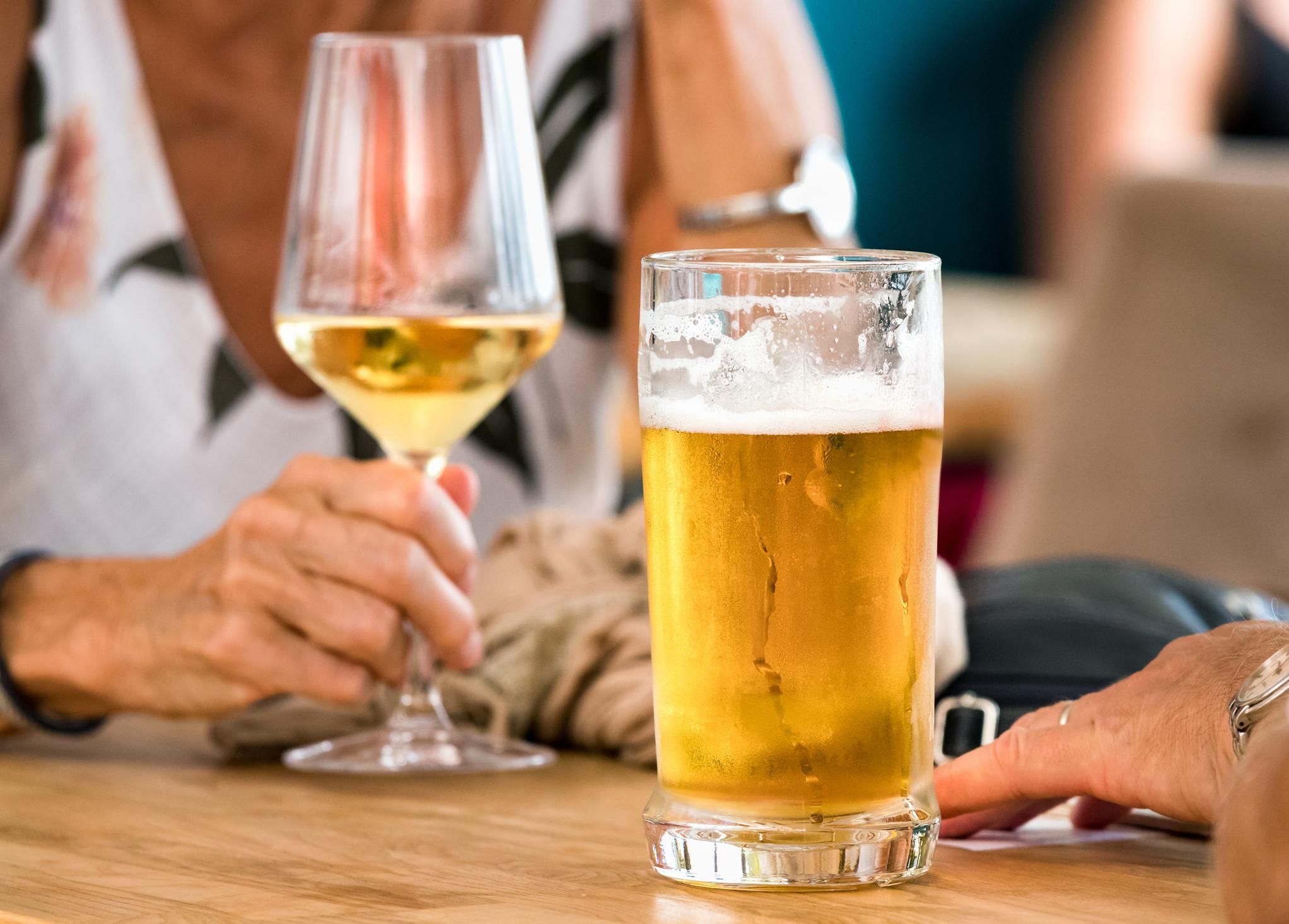Beer and Spirits Have More Detrimental Effects on the Waistline and on Cardiovascular Disease Risk Than Red or White Wine
[ad_1]
By Brittany Larsen, Iowa State College
The Study Brief is a brief take about attention-grabbing educational work.
The major concept
Drinking beer and spirits is linked to elevated degrees of visceral fats – the harmful variety of extra fat that is involved with an enhanced hazard of cardiovascular ailment, metabolic syndrome, and other wellbeing troubles – while ingesting wine exhibits no this sort of affiliation with stages of this hazardous extra fat and may well even be protective versus it, depending on the kind of wine consumed. In simple fact, we observed that consuming pink wine is connected to owning decrease amounts of visceral unwanted fat. These are some of the vital takeaways of a new research that my colleagues and I lately printed in the Obesity Science & Apply journal.
While white wine consumption did not influence degrees of visceral fat, our examine did present that drinking white wine in moderation may well provide its very own special well being profit for older adults: denser bones. We identified higher bone mineral density between more mature older people who drank white wine in moderation in our analyze. And we did not uncover this exact same connection between beer or pink wine consumption and bone mineral density.
Our research relied on a significant-scale longitudinal database called the U.K. Biobank. We assessed 1,869 white grown ups ranging in age from 40 to 79 several years who claimed demographic, liquor, dietary and lifestyle aspects by way of a touchscreen questionnaire. Future, we gathered height, bodyweight and blood samples from every participant and acquired human body composition facts making use of a direct evaluate of body composition named dual-energy X-ray absorptiometry. Then, we utilised a statistical application to analyze the interactions amongst the forms of alcoholic drinks and entire body composition.
Why it issues
Aging is normally accompanied by an increase in the problematic body fat that can guide to heightened cardiovascular disease chance as perfectly as by a reduction in bone mineral density. This has critical wellbeing implications provided that just about 75% of grown ups in the U.S. are regarded over weight or obese. Acquiring greater concentrations of entire body fats has been persistently joined to an amplified threat for attaining a lot of diverse ailments, including cardiovascular disease, certain forms of most cancers, and a bigger chance of loss of life. And it’s truly worth noting that national health care care expenditures involved with treating weight problems-relevant ailments overall more than US$260.6 billion yearly.
Contemplating these traits, it is vital for scientists like us to examine all the possible contributors to bodyweight gain so that we can decide how to battle the trouble. Alcoholic beverages has extended been regarded one attainable driving issue for the being overweight epidemic. However the community generally hears conflicting data about the opportunity dangers and benefits of alcoholic beverages. Thus, we hoped to assistance untangle some of these components by means of our exploration.

iStock.com/Ruben Ramos
What however is not known
There are quite a few biological and environmental elements that contribute to remaining over weight or obese. Liquor use may perhaps be 1 component, though there are other scientific tests that have not found very clear one-way links involving pounds gain and alcohol usage.
A person reason for the inconsistencies in the literature could stem from the reality that significantly of the former investigation has customarily dealt with alcoholic beverages as a solitary entity relatively than independently measuring the consequences of beer, cider, red wine, white wine, Champagne and spirits. Nevertheless, even when broken down in this way, the investigate yields mixed messages.
For illustration, one research has prompt that drinking much more beer contributes to a larger waist-to-hip ratio, while a further analyze concluded that, just after one month of consuming reasonable ranges of beer, healthier older people did not expertise any major body weight attain.
As a end result, we’ve aimed to more tease out the special dangers and advantages that are affiliated with every single alcoholic beverages form. Our subsequent actions will be to study how diet regime – which includes alcoholic beverages use – could impact disorders of the brain and cognition in older adults with mild cognitive impairment.
[Over 150,000 readers rely on The Conversation’s newsletters to understand the world. Sign up today.]![]()
Brittany Larsen, Ph.D. Applicant in Neuroscience & Graduate Assistant, Iowa Point out University
This article is republished from The Conversation beneath a Creative Commons license. Go through the original report.
[ad_2]
Supply hyperlink




